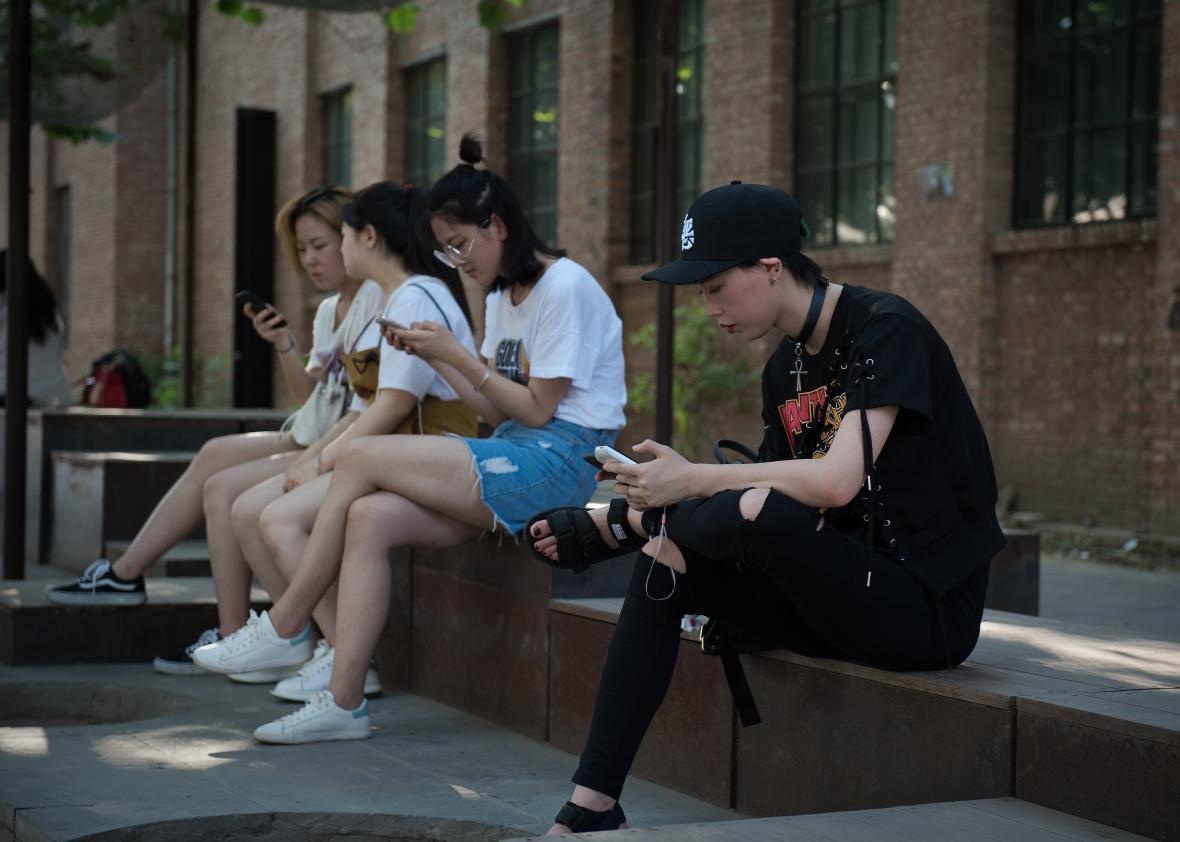Over the weekend, Apple took a small step to help shore up the Great Firewall of China: It deleted more than 60 apps used to route around internet filters from its App Store in China.
The removed apps are virtual private networks, or VPNs, which are used to tunnel web traffic through another computer, often hosted in other countries. VPNs allow Chinese users to circumvent government censorship by essentially letting people use the internet as if they weren’t in China.
The move came after the Chinese government began enforcing a cybersecurity law that prohibits the use of unregistered VPN apps, Apple CEO Tim Cook said on a call with investors on Tuesday.
The government goes to extreme lengths to censor the internet in China. People living in China are blocked from social media sites, like Facebook or Twitter, as well as Google search and some foreign news websites, like the New York Times. When China’s prominent political prisoner and Nobel Peace Prize winning democracy activist Liu Xiaobo died in July, the Chinese government censorship machine went into high gear, blocking posts and messages about Liu from being shared across the web. In Freedom House’s 2016 rankings on digital rights, it called China “the year’s worst abuser of internet freedom.”
Apple’s move to disable access to VPN services in its Chinese App Store signals the tech giant is complicit, at least at some level, in Chinese censorship. “We would obviously rather not remove the apps,” Cook said on Tuesday. “But … we follow the law wherever we do business.” Mainland China, Hong Kong, and Taiwan, together, make up Apple’s largest market after the United States.
Human rights advocates aren’t happy with Apple’s shrugged-shoulders approach. “Businesses have a responsibility to respect international human rights law, independent of a state’s own compliance with their human rights obligations,” Josh Franco of Amnesty International wrote in a blog post. “By withdrawing access to VPNs from its Chinese customers, Apple is betraying these responsibilities.”
The people behind VPNs were, predictably, also critical of Apple’s decision. When Express VPN’s app was removed from the iOS store, the company tweeted that it was “dismayed” that “Apple sided with censorship.”
Apple isn’t the only firm bending to Chinese censorship requests. On Tuesday, the Chinese firm that runs Amazon’s Web Services in the country told its customers that if they don’t stop using tools that can be used to circumvent the country’s censorship machine, their websites may be shut down, reported the New York Times.
Facebook has also reportedly developed software that could appease Chinese censors. The social network has created tools that would allow a third party to block posts from people’s news feeds in certain geographic areas. It’s part of a larger, ongoing effort to cajole China into letting Facebook to operate in the country.
Meanwhile, on Sunday, Russia—which as Emily Parker has written in Future Tense, increasingly looks up to China as an internet censorship role model—passed a law prohibiting the use of VPNs to anonymously view sites censored by the government.
But Apple’s compliance with Chinese censors is particularly curious, given the company’s very public 2016 battle with the FBI over protecting users’ information rights. Apple fought a court order compelling it to break the encryption on an iPhone in the course of a terrorist investigation. At the time, Apple was celebrated as a champion of civil liberties.
But if Apple and Amazon are willing to bend to the will of governments that censor the internet, it’s fair to ask whether Apple’s fight with to protect the privacy of its users in the U.S. was primarily a public relations stunt. If Apple really cared about protecting the rights of its users, the company would probably not cower to the requests of Chinese censors.
Anyone concerned with the role American tech companies will play in future of protecting basic rights both in the U.S. and abroad should take a hint: These companies are ultimately out to make money. Making the world a better place will always come second.
